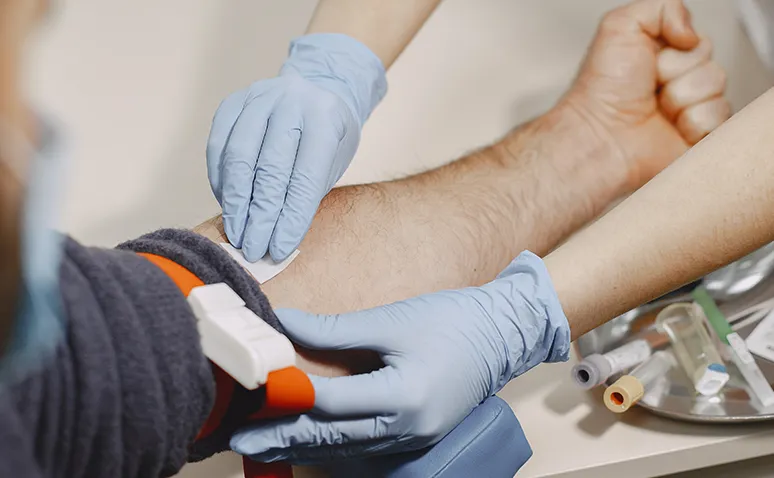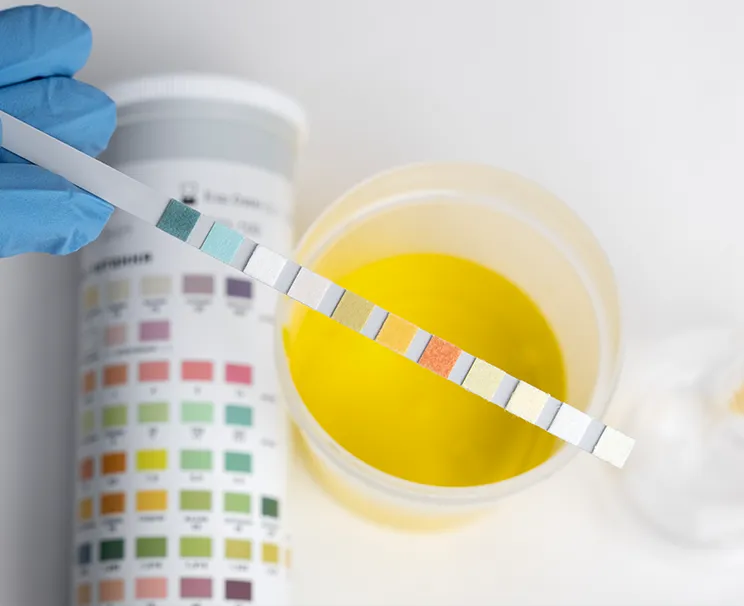Fetal DNA test allows for the examination of the baby’s genetic material circulating in the expectant mother’s blood during pregnancy. With its non-invasive nature, this method helps assess certain chromosomal anomalies without carrying the risk of miscarriage. Being applicable in early weeks provides families with additional information during the diagnostic process.
Fetal DNA analysis is a modern genetic examination method that enables the detection of possible abnormalities in specific chromosomal structures of the baby. The reliability of the test is associated with the laboratory technology used and the analysis procedures applied. The results are evaluated by the physician along with other clinical data and then conveyed to the family. In this way, it contributes to making more informed decisions during pregnancy follow-up.
What is Fetal DNA?
The fetal DNA test is a method that examines the baby’s genetic material through a blood sample taken from the expectant mother. This test can be performed in the early stages of pregnancy and, since it does not require an invasive procedure, it carries no risk of miscarriage.
Free DNA fragments circulating in the mother’s bloodstream are analyzed to gain information about certain chromosomal anomalies.
During pregnancy, the DNA test is used for screening conditions such as Down syndrome, Edwards syndrome, and Patau syndrome. The results obtained may vary depending on the technologies used and the week the sample is taken.

The test is not a diagnostic method; however, due to its high accuracy rate, it serves as an important guide during pregnancy.
This procedure is planned by specialist physicians and, after the sample is collected, it is sent to a genetic analysis laboratory. The results are usually available within a few days, and the physician evaluates the data along with other clinical findings.
Fetal DNA tests are screening tests. A definitive diagnosis is only made through advanced examinations when necessary.
Advantages of testing baby DNA in maternal blood include:
- It does not require an invasive procedure, thus carrying no risk of miscarriage.
- Can be performed in early weeks.
- Contributes to pregnancy monitoring with a high accuracy rate.
- Provides important information about the baby’s chromosomal structure, helping to identify possible genetic risks at an early stage.
This test should be performed by applying to a healthcare institution with competent personnel and reliable technical infrastructure. Physician evaluation and proper laboratory conditions increase the reliability of the test. The fetal DNA test helps families make informed and healthy decisions during pregnancy.
Fetal DNA Test Price
The cost of a fetal DNA test varies depending on the technical infrastructure of the center where it is performed, the methods used, and the reporting process. This test is a modern method developed to examine the genetic structure of the baby during pregnancy.
The test is particularly used for detecting chromosomal disorders such as Down syndrome (trisomy 21) and Edwards syndrome (trisomy 18). Laboratory specialists analyze blood samples to provide information on possible anomalies.
Unlike other screening tests, the prenatal DNA test may have a higher accuracy rate; however, in rare cases, it can produce false-positive results.
Prices generally fall within certain ranges regardless of the method used or the gestational week. In some centers, different genetic testing options may also be included in the package. The results obtained should only be interpreted by a specialist physician, and further examinations should be planned when necessary.
The fetal DNA test is a safe procedure for both mother and baby. Although prices may vary, it is recommended to choose centers with qualified staff to ensure reliable results.
Factors affecting the cost of a prenatal DNA test include:
- The up-to-dateness of the laboratory technology used
- The scope of the test and additional analysis options
- Sample collection and reporting time
- The city where the healthcare center is located and its service policies
For precise information on prenatal DNA test prices, it is necessary to directly contact the institution performing the procedure. This way, clear information regarding the cost and scope of the process can be obtained.
Sıkça Sorulan Sorular
The fetal DNA test screens the baby’s chromosomal structure for genetic disorders such as Down syndrome, Edwards syndrome, and Patau syndrome.
The price varies depending on the healthcare center, technologies used, and the scope of the test. For exact fees, the relevant center should be contacted.
It is often preferred in high-risk pregnancies and for older expectant mothers. However, it should always be decided based on a physician’s evaluation.
The double test is a more common, earlier test. The fetal DNA test, on the other hand, can provide additional information with a higher accuracy rate.
SMA is not included in standard screening packages. An additional genetic test must be requested for this condition.
Autism is not a condition that can be directly identified through genetic screening, so it is not detected in the fetal DNA test.
For information on fetal DNA testing and other prenatal screening methods, you can consult Denge Tıp.











